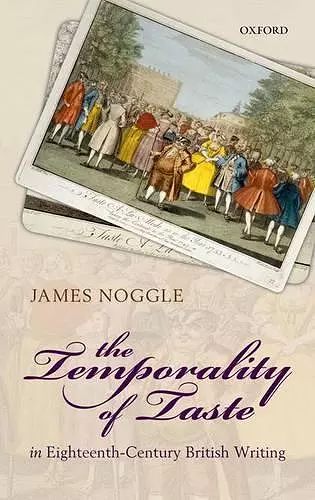The Temporality of Taste in Eighteenth-Century British Writing
Format:Hardback
Publisher:Oxford University Press
Published:9th Feb '12
Currently unavailable, and unfortunately no date known when it will be back

Is taste a quick, momentary experience in the individual mind? Or something durable, shaped by slow, historical processes, affecting groups of people at different times and places? British writers in the eighteenth century believed that it was both, and the tension between these temporal poles shaped the meaning of taste in the period and set a course for aesthetics in following centuries. Focusing on works in many genres-Alexander Pope's poems, David Hume's historiography, essays by Hannah More and Anna Barbauld, and novels by Frances Burney and William Beckford-this book sees the divided temporality of taste as an unpredictable force in British writing. The eighteenth century was the age of taste. Writers considered its intense effects on individual minds as especially characteristic of the collective present of British modernity, whilst they also recognized the disturbing tendency of taste's immediacy and its historical roles to interrupt and foreclose on each other. While noting how taste's two temporal flavours may be made to agree in order to consolidate various national, social, and gendered identities, this book also demonstrates that taste's dual temporality makes it more disruptive than scholars usually think. As such, taste models a kind of critical practice that this book itself endeavours to inherit: the insistent testing of the moment of discernment and on-going patterns of thinking and feeling against each other.
Noggle addresses taste in the abstract: the faculty itself as opposed to its many divergent manifestations ... he takes seriously a tradtion of aesthetic discourse from Addison and Shaftesbury onwards that explores the origin and nature of taste and seeks to identify in its working ... something more meaningful and enduring than arbitrary, subjective preference. The analysis is richly contextualized in fugitive journalism and verse * Thomas Keymer, Times Literary Supplement *
[A] fine contribution to our understanding of eighteenth-century aesthetic theory tout court ... subtle and characteristically intelligent. * Matthew Scott, BARS Review *
ISBN: 9780199642434
Dimensions: 222mm x 147mm x 20mm
Weight: 442g
246 pages